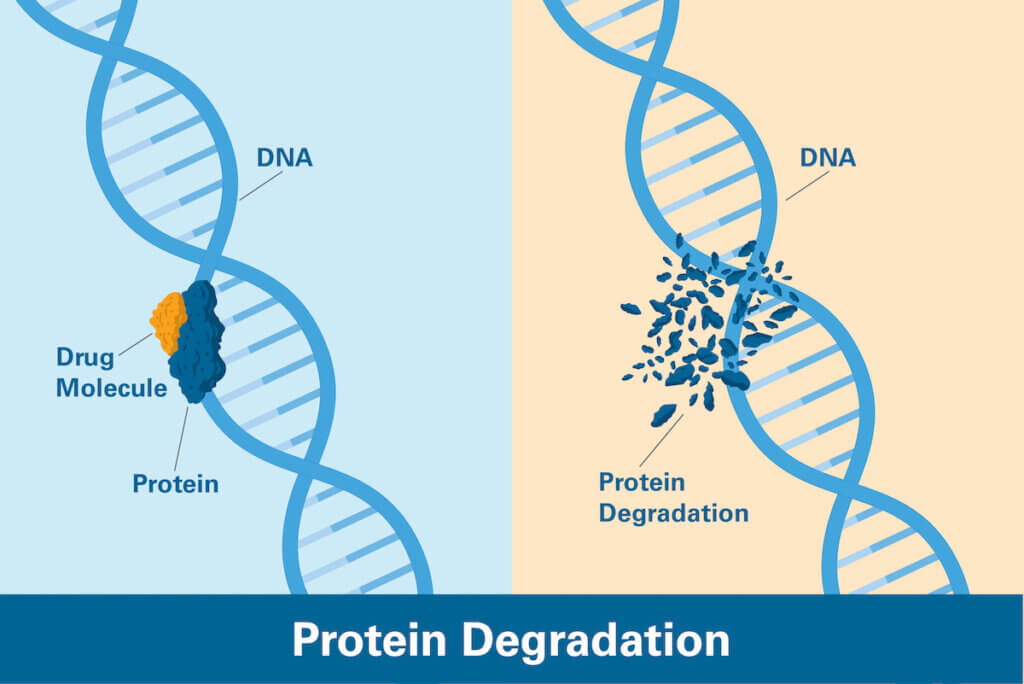Protein degradation is a natural process by which cells break down proteins that are damaged or no longer needed so they can be recycled or disposed of.
Scientists at Dana-Farber and elsewhere are harnessing this process to destroy specific proteins involved in cancer, an approach known as targeted protein degradation. In contrast to traditional targeted therapies, which block cancer-related proteins, targeted protein degradation offers a way to eliminate them altogether.
How do protein degradation therapies work?
Protein degradation therapies consist of drug molecules that bind to proteins needed by cancer cells. Once bound, the molecules send a signal to the cell’s machinery for breaking down unwanted proteins. The machinery moves into position and dismantles the cancer-promoting proteins so they’re no longer functional.
What are the advantages of protein degradation therapies?
There are two major advantages. One is that protein degradation therapies often can reach cancer-related proteins that conventional targeted therapies cannot. Many of the proteins that play a role in cancer cannot be disabled by standard drug molecules because they lack “pockets” or crevices that the molecules can fit inside. The molecules used in protein degradation, by contrast, don’t require such pockets for binding.
The second advantage is that tumor cells hampered by protein degradation are less likely to become resistant to therapy. Because existing targeted therapies only block cancer-related proteins, rather than destroy them, tumor cells can sometimes find ways of reactivating those proteins and restimulating cell growth. Therapies that eliminate such proteins make it harder for tumor cells to mount a comeback.

Which protein-degrading drugs are currently used to treat cancer?
A wide range of such drugs are currently being developed and studied in clinical trials, although none has yet received U.S. Food and Drug Administration approval as standard therapy for cancer.
One already-existing drug, however, has been found to work by protein degradation. In 2018, Dana-Farber scientists reported that thalidomide — banned in the 1960s after causing birth defects when taken by pregnant women but reborn as a drug for multiple myeloma — achieves its anti-cancer effect by targeting a key protein for degradation.
What research is under way in protein degradation therapy?
At Dana-Farber, researchers are working to identify promising protein targets for degradation and to develop new molecules that can function as degrader therapies. In one study, researchers led by Eric Fischer, PhD, found that degrading a protein called Helios lowers the activity of immune system T cells that tamp down an immune attack on cancer. Fischer and his colleagues have also identified approximately 200 enzymes called kinases that are prime targets for degradation in cancer cells.
At the Institute’s Center for Protein Degradation, scientists are designing and developing protein-degrading molecules that target specific proteins in cancer. Some of their recent work includes a study of a novel way of “tagging” cancer-related proteins for removal and study of a new technique for identifying protein degraders.
